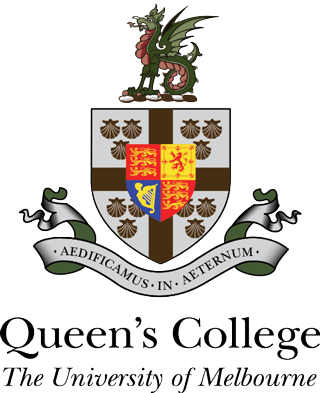The Life of the World to Come
“The Life of the World to Come”
Vale Frà Richard Sydney Benedict Divall AO OBE
Born Sydney 9 September, 1945 — Died Melbourne 15 January, 2017
Words by David Barmby
Maverick musicologist, conductor, composer and mentor Richard Divall has died after a long and courageous battle with cancer. On the invitation of Dame Joan Hammond he was appointed music director of Victorian State Opera in 1972 where he remained for 25 years followed by a period of five years as principal resident conductor of Opera Australia. A fellow of Queen’s College from 1988 he was also artist-in-residence at the College until 1991.
“Richard Divall is a seminal figure in the history of opera in Australia. He raised the Victorian State Opera to a position of international reputation and provided outstanding artistic leadership.” — Richard Mills AM
His passion was Australia’s musical heritage and much of his life was spent restoring, editing, promoting and performing music by Australian composers of the 19th and early 20th centuries. His most recent work involved completing editions of the complete sacred music and operas of Nicolas Isoard (1773–1818 Malta/France) and Michael Festing (1705–1752 England).
Divall was, among other accolades, Vice-Chancellor’s Professorial Fellow (from 2011) and subsequently Adjunct Professor in the Faculty of Arts, Monash University, Associate Professor of Music at the University of Melbourne, and Visiting Professor at The University of Malta. In 2014 he was appointed an Honorary Research Fellow at the University of Divinity and in September 2014 served as a Visiting Professor of Music at King’s College, London. He was awarded honorary doctorates from Monash University (1992), and Australian Catholic University (2004) and became a member of the Order of Australia in 2009 for his services to the performing arts, preservation of Australia’s musical heritage, support for young performers and service to the community.
Converting to Roman Catholicism Professor Divall became a Knight of Malta in Solemn Religious Profession in 1989 and undertook charitable work for medical research, and worked for the sick and homeless. He referred to the dome at the University of Melbourne’s Newman College, designed by Walter Burley Griffin, as his “spiritual home”.
“His lovely high-ceilinged apartment [at Queen’s College] was lined with shelves of opera scores and LPs and hung with 19th century oil paintings and Piranesi etchings. It became a salon and the scene of many dinner parties. It contained his collections of coins, stamps and pewter. He collected loyal friends with the same enthusiasm.” — Campbell Thomson
Richard Divall was an eternally grateful and gracious man who was always eager to support upcoming talent. A true musician, he was widely admired for his sensitive, careful and thoroughly resolved direction of opera. The author particularly remembers a performance in Melbourne of La Traviata in the State Theatre, Arts Centre Melbourne in November 1998 directed with rare sensitivity and expression; Divall was always in total command of the music he produced.
There was, however, a sad period when inexplicably he was no longer in favour as a conductor. But in the face of hardship, Divall always presented a positive stance. Every day was a new opportunity to be an advocate for music and encourage others. His well-attended funeral at St Patrick’s Cathedral Melbourne on 25 January drew many singers, composers, musicians and musicologists who clearly held Richard in the highest esteem and affection. Divall’s warm connection to Queen’s College was acknowledged more than once. A moving performance of Elegy by Septimus Kelly (1881–1916 Australia/England) performed by Orchestra Victoria concluded the Requiem Mass.
His last days were spent meditating on the final words of the Nicene Creed: Et expecto resurrectionem mortuorum et vitam venturi saeculi (And I await the resurrection of the dead and the life of the world to come). Amen to that.
A scholarship named in Richard Divall’s honour to support a talented young musician is being developed. Should you be interested in making a contribution or to discuss the scholarship please contact Nicole Crook, Director of Development, on +61 3 9349 0760.
David Barmby is former head of artistic planning of Musica Viva Australia, artistic administrator of Bach 2000 (Melbourne Festival), the Australian National Academy of Music and Melbourne Recital Centre. He is currently administration manager at the Centre for Theology and Ministry, Uniting Church in Australia and a music reviewer for ArtsHub Australia.
